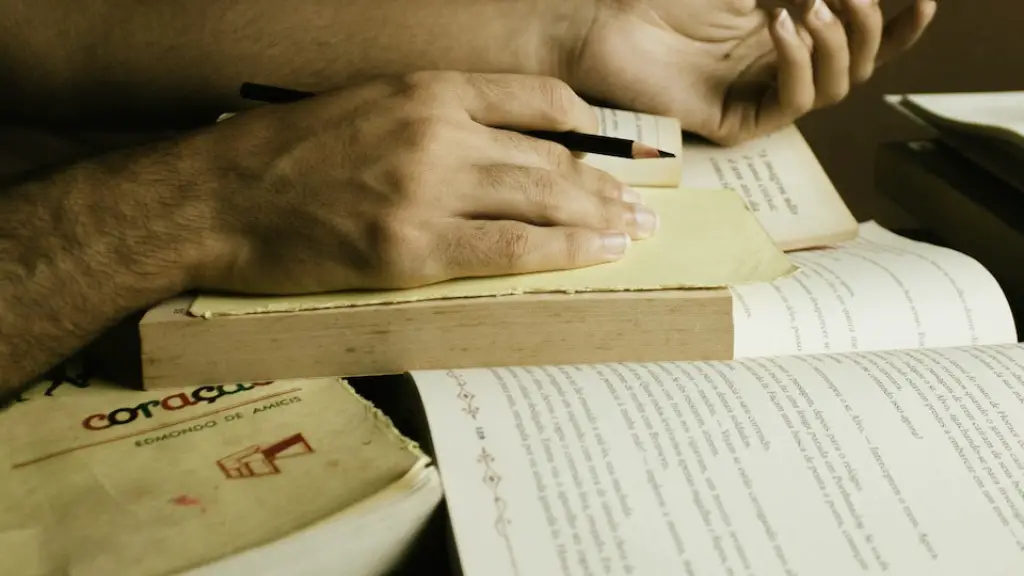Urban poetry is a form of poetic expression that often focuses on the issues and experiences that urban and minority groups encounter in their daily lives. It is characterized by its vivid and transparent language, conveying emotions and ideas that go beyond traditional poetic conventions. Urban poetry highlights the common issues in cities, such as inequality, poverty, and diversity, and allows for a more honest and direct exploration of them.
Urban poetry often takes place in the neighborhoods and streets of contemporary cities. The poems explore the urban experience as it relates to class, race, gender, and so on, by capturing the cultures and atmospheres of the city. Urban poetry also includes topics related to everyday life, such as religion, family, friendship, and the various cultures that are found in the city. In addition, the poems convey a sense of agency in changing the urban environment.
The term “urban poetry” can also refer to the particular type of urban and hip hop musical styles and poetic expressions that originated in cities such as New York, Detroit, and Los Angeles. Hip hop poets and rap stars often draw on their own experiences as minorities in their lyrics, expressing the hardships and injustices that they face. urban poetry is thus related to spoken-word performance and rap music, as well as more traditional poetry forms.
Urban poetry is an intense and vibrant form of self-expression. It offers a conscious and critical take on urban life and its problems. Writers of urban poetry often strive to remedy injustice through the universal understanding of human experience, as well as inspire action through the vividness of their language.
As with any form of poetic expression, there is no single way to write urban poetry. Writers often draw heavily on their own personal experiences and draw upon influences from other genres, such as hip hop and rap. Writers may also incorporate other elements such as narrative, metaphor, or satire. It is important to remember that urban poetry is highly subjective and what resonates with one person may not be the same as what resonates with another.
Cultural Influences of Urban Poetry
Urban poetry is a reflection of current social and cultural trends, and often reflects on the struggles faced by urbanites in their daily lives. It is heavily influenced by the contemporary political, economic, and social climate of the cities in which it is written. As a result, urban poetry often speaks to the shared experiences of urban and minority groups, particularly with regards to racism and oppression. In some cases, the poetry conveys collective sentiment and frustration, while in others, it gives voice to individual perspectives and concerns.
Urban poetry often acts as a form of resistance and protest, and has been used as a tool to express solidarity and fight injustice. Writers often call out oppressive regimes and governments and push for social reform. They also speak of the struggles of those who have been marginalized and oppressed in the city, and provide a space for self-expression. By doing so, they often help to build solidarity and collective identity amongst urbanites.
The Role of Language in Urban Poetry
The language used in urban poetry is often very vivid and transparent. Writers draw on slang and colloquial terms to express their message, and often use satirical and emotional language to great effect. By using language that is familiar and accessible to urban audiences, the poems can better convey the thought of their creators and be more widely understood.
Urban poetry is also often very lyrical and metaphorical, using the power of words to weave a story or paint a vivid image. Writers often resort to unexpected and innovative wordplay to give their verses a unique flavor. In addition, they often rely heavily on rhythm and repetition to strengthen the message of the poem and to further engage their audience.
The Impact of Urban Poetry
Urban poetry has long been used as a way to document marginalized and oppressed perspectives, and to provide a space for those voices to be heard. It has served as a form of self-expression and identity building for many, particularly in the African-American and Latino communities.
The impact of urban poetry can be seen in the way it has been embraced by many young people in urban centers. It has become a powerful tool for addressing issues of social and racial injustice, and has inspired many to stand together in solidarity and work towards creating more equitable societies.
The Current State of Urban Poetry
The current state of urban poetry is one of dynamism and complexity. As cities across the world become increasingly diverse, urban poetry is becoming more varied and nuanced. Writers are drawing on multiple influences and embracing multilingualism to communicate their messages. In addition, many digital platforms, such as social media, YouTube, and SoundCloud, are being used to create and share urban poetry more widely. As a result, the genre is gaining greater visibility and becoming more accessible to a wider audience.
Urban Poetry in the Future
As cities become more diverse and complex, urban poetry is likely to remain a vital part of the cultural landscape. It will continue to provide a space for self-expression and identity building, and for exploring collective experiences.
The digital media landscape will remain a key platform for disseminating and engaging with urban poetry, and technology is likely to be used to enhance the reach and impact of the genre. In addition, the use of multilingual and cross-cultural influences will likely become more pronounced, allowing for urban poetry to gain a greater global audience.
Finally, urban poets are also likely to use the genre as a tool to fight discrimination and injustice, and to provide a space for collective discussion and collaboration. In doing so, they may offer effective solutions to urban problems.

